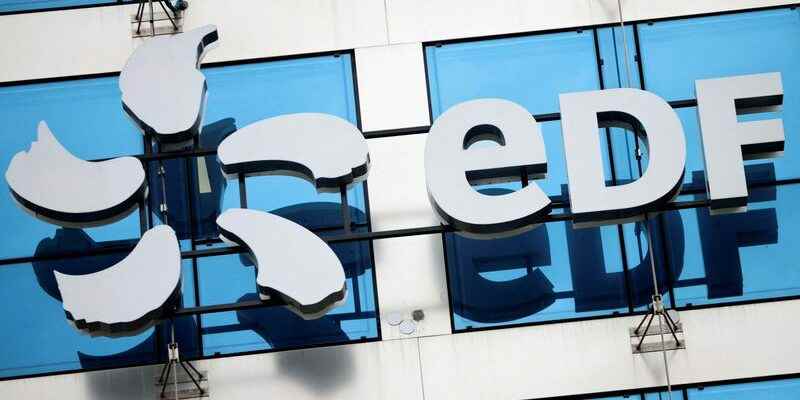PARIS (Reuters) – The Elysee Palace announced on Thursday its intention to appoint Luc Rémont as CEO of EDF to replace Jean-Bernard Lévy.
Here are the main elements concerning the profile of the leader, who has been leading the international activities of Schneider Electric since 2017, and the projects that await him at the head of the public electrician:
A CAREER BETWEEN PUBLIC AND PRIVATE
Luc Rémont, 53, began his career in the public sphere when he joined the Directorate General for Armaments in 1993 before joining the Treasury in 1996. He was then, from 2002 to 2007, Deputy Director of the Cabinet of finance ministers in Jacques Chirac’s second term, including Nicolas Sarkozy and Thierry Breton.
Left in the private sector, at Bank of America Merrill Lynch, from 2007 to 2014, this polytechnician then joined Schneider Electric, first as head of French activities, then of international operations. Luc Rémont also chaired Gimélec, the union of companies in the French digital electronics sector, from 2015 to 2017.
Reserve soldier and father of four children, the future boss of EDF is also a great sailing enthusiast.
RESTORING NUCLEAR PRODUCTION, A SHORT-TERM PRIORITY
The Minister of the Economy, Bruno Le Maire, has already set the roadmap for the future CEO of EDF in the short term: to restore the production of the company’s nuclear fleet, penalized by operations of maintenance and corrosion problems.
Luc Rémont will therefore first have to ensure that the group puts enough reactors back into service to best meet demand next winter, in a context of European energy crisis fueled by Russia and aggravated in recent months by the historically low availability of French power plants.
“What we expect from EDF as an absolute priority is the restarting of the reactors which today are subject to stress corrosion”, declared Bruno Le Maire. “It is on this ability of EDF to restart its reactors that our ability to spend a serene winter will depend.”
NATIONALIZATION AND REGULATION, OTHER MAJOR PROJECTS
Luc Rémont will also have to accompany the project of complete renationalization of EDF, the French government having announced its intention to increase to 100% of the capital of the group – which it already holds at 83.7% – for an amount of 9.7 billion euros.
The operation must go through a public tender offer, which was initially to be launched in early September but which has been delayed.
This renationalization should give the executive a free hand to lead EDF in the midst of a crisis, the group having issued multiple warnings on its results linked to the drop in its nuclear production and to the decisions of the State to limit electricity prices. .
Subsequently, the new CEO of EDF will have to work with the government to obtain from Brussels not only a new regulation of the existing French nuclear fleet but also a framework to finance the construction of new EPRs promised by Emmanuel Macron.
IN THE LONGER TERM, WHAT ORGANIZATION FOR EDF?
The unions fear that the renationalization of EDF is only the prelude to a new major reorganization project. The previous one – called “Hercules” – was abandoned in the face of the demands of Brussels and the strong opposition aroused by the possibility of a reorganization of the group which would have led, according to its opponents, to a dismantling.
Luc Rémont’s first contacts with the unions are likely to be decisive and the new CEO will have to “carry out the social dialogue morning, noon and evening”, according to a parliamentary source.
While a two-headed management was initially envisaged for EDF, the fact that Luc Rémont finally combines the functions of chairman and general manager leaves a union source skeptical: “With full powers, without any knowledge of nuclear (…), it’s going to be hot. (It’s) a pure product of Bercy at the controls of an industrial giant.”
(Report Benjamin Mallet, with Mathieu Rosemain; edited by Marc Angrand)
